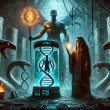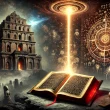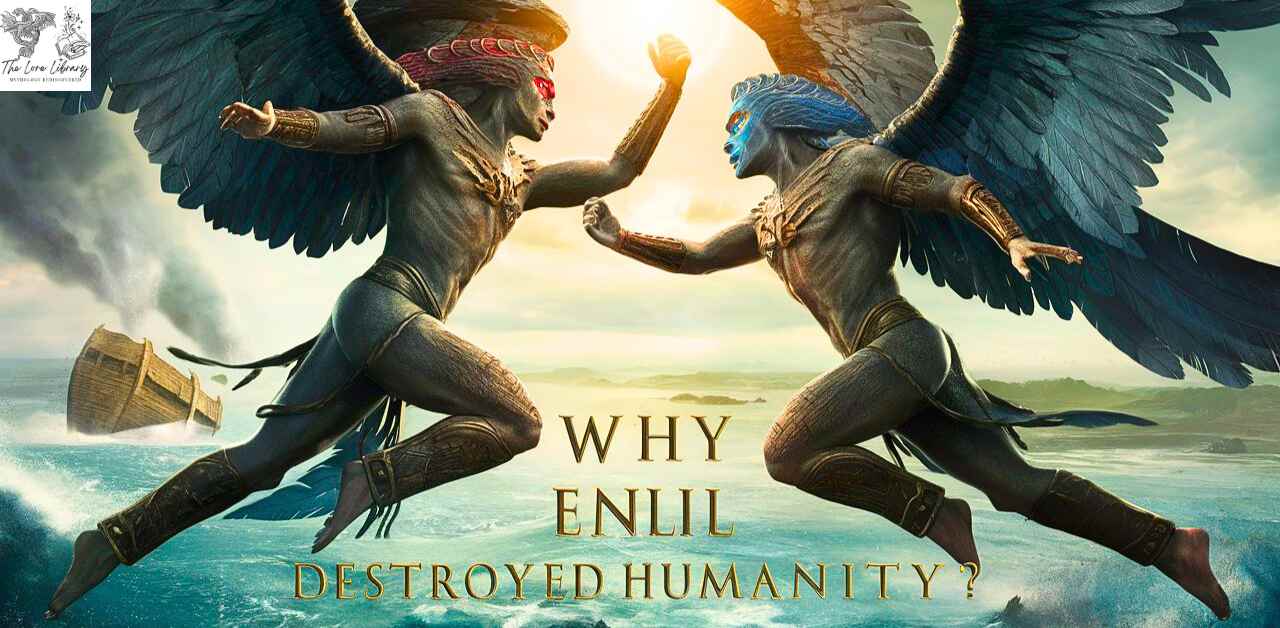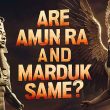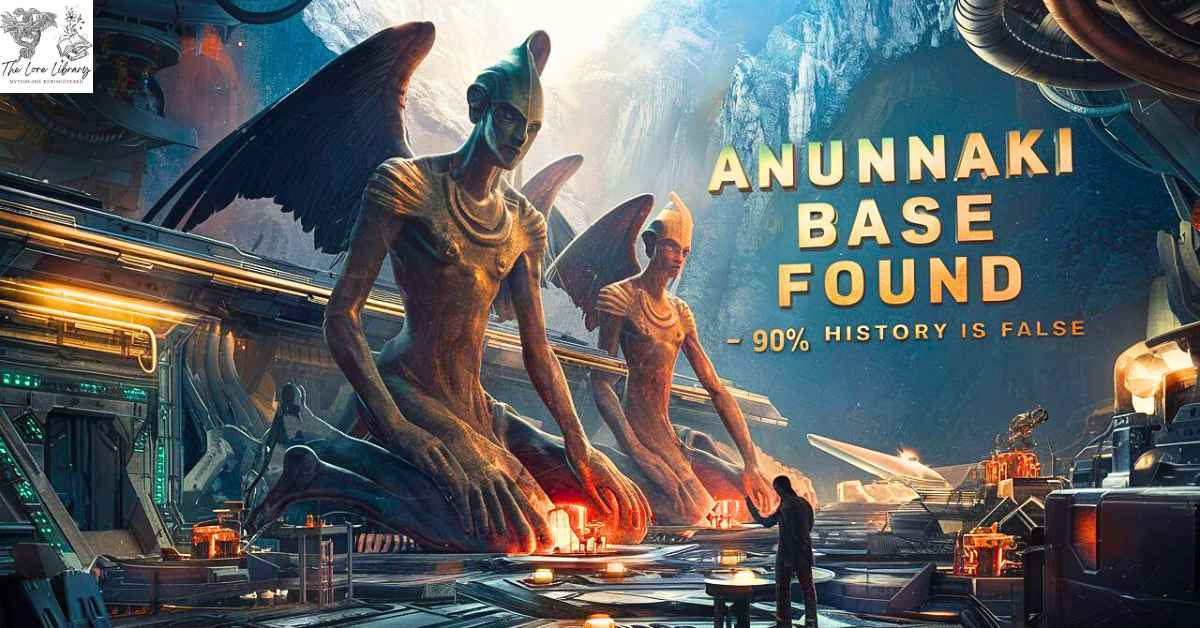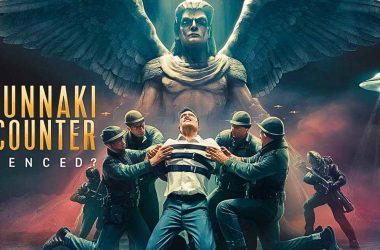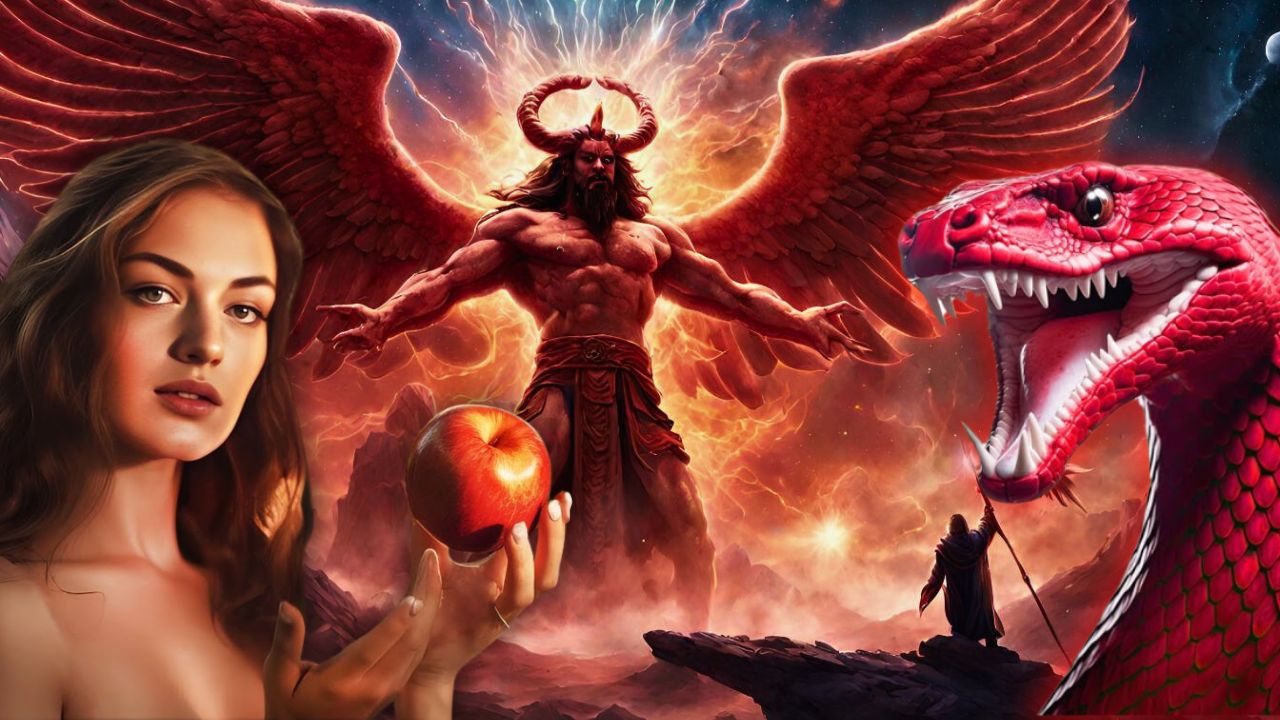The Anunnaki were a group of deities worshipped in Ancient Mesopotamia. The Ancient Astronaut Theory claims that the Anunnaki were extraterrestrial beings who came to Earth in the past and enslaved humans. The oldest of them is said to be Enlil, the god of air and wind.
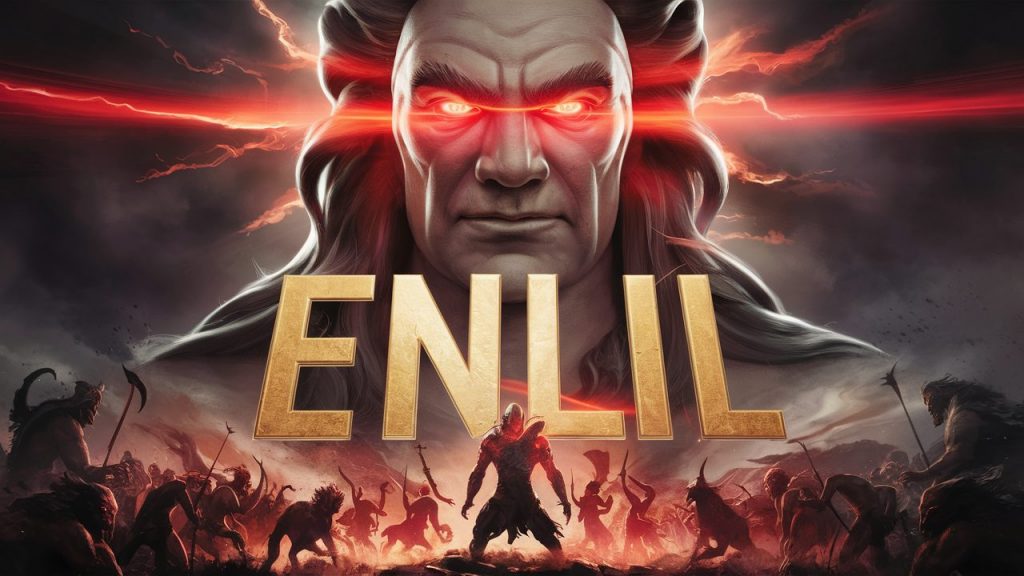
Why did Enlil Attack Humanity?
Enlil was one of the most important and powerful gods in the Mesopotamian Mythology. One Sumerian poem even says that he was so holy that not even the other gods could look upon him. The Sumerians are considered to be one of the oldest civilizations to have a pantheon of deities or gods. Enlil was not only worshipped by them, but also by the Akkadians, Babylonians, Assyrians, and Hurrians later in time.
But what’s his story? What connection does Enlil have with gods from other mythologies like Zeus? Was Enlil the one who caused the great flood which wiped out the entire human race? In today’s article, we are going to learn more about Enlil and his part in the Mesopotamian Mythology. So make sure to read it till the end!
Enlil was seen as a king of heaven and earth. All the rulers in Sumer had to travel to the city of Nippur and visit the Ekur temple to be legitimized. The temple flourished with the donations of lands and precious objects of various kings. With the city’s advancement, the cult of Enlil grew bigger and bigger, but when it was sacked by the Elamites in 1230 BC, the cult slowly declined and Enlil was eventually supplanted as the chief god of the Mesopotamian pantheon by the Babylonian national god Marduk.
But even during the Babylonian period, the people never stopped honoring him. They called him Elil. Many Babylonian kings still traveled to the holy city of Nippur to seek recognition of their right to rule.
Before Enlil, the sky god Anu was seen as the chief god of the Mesopotamian Pantheon. Enlil is Anu’s son. He is credited for making the earth a perfect place for humans to live by separating An, the heaven, from Ki, the earth. Enlil is considered the second most powerful Mesopotamian god next to his father, Anu. But sometimes he was seen as a god who was stronger than Anu himself. There was also a practice of invoking their names together in rituals. Enlil possessed the Tablets of Destiny, which contained the fates of gods and humanity. It gave him immense power and authority.
In some inscriptions, he is mentioned as the “Father of the Black-headed People”, which refers to the Sumerians and “Father of the Gods”. In his role as ‘Lord Wind’, Enlil was seen as the moist wind of spring but also the wind of a destructive storm. He was thus seen as a god with a two-sided nature. He was also credited with the creation of the hoe, a tool used in farming.
The Sumerian flood story is one of the oldest flood stories in the world. It is also called Eridu Genesis. However, the causes of the flood are unclear because the portion of the tablet recording the beginning of the story has been destroyed. It explains how the Sumerian people were created by An, Enlil, Enki, and Ninhursag at the beginning. Ninhursag is the wife of Enki. Enki is the god of wisdom.
The gods then created the animals and made them multiply on the plains. The first cities, Eridu, Badtibira, Shuruppak, Sippar, and Larak were built and the kingship descended from heaven. The humans somehow upset the gods, but it is unclear what they did. As a result, the gods decided to send a flood to wipe out the people of the cities.
The pious king Ziusudra gets warned about the coming deluge. Although it is unclear which God warned him, a tablet called the Schoyen fragment provides a clue that Zisudra is a priest of the god Enki. From this little piece of information, we can make out that Enki was the one who probably warned him about the flood.
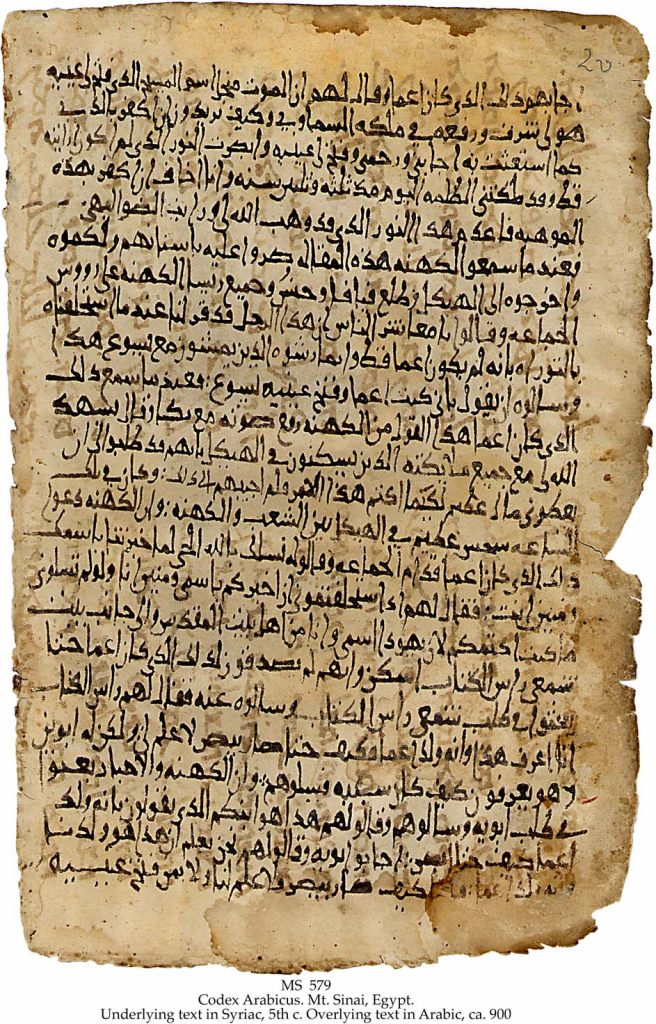
Soon, massive windstorms and a great flood swept over the land. Everyone and everything was destroyed except for Ziusudra, who built an ark and sailed on it for seven days and seven nights. Then, Utu, the god of the Sun, comes out. After seeing him, Ziusudra immediately prostrated before him and made a sacrifice. An ox and a sheep were killed by him in honor of Utu.
After learning about Ziusudra’s great escape, the mighty gods Anu and Enlil became angry. “How did he manage to escape?”, they asked. Enki was later found guilty and the gods said, “we have made you swear by heaven and earth not to tell any human about the flood”. Ziusudra, after seeing his saviour getting scolded by the gods for helping him, prostrated himself before Anu and Enlil as a show of respect and hoped that the gods would be satisfied and forgive Enki.
It worked and the gods grant Ziusudra eternal life for having preserved the animals and seed of humankind and also pardons Enki. The gods then settle Ziusudra in an overseas country – the land of Dilmun, where the sun rises east.
In the later Akkadian version of the flood story, recorded in the Epic of Gilgamesh, Enlil was the one who caused the flood. In this story, Anu is referred to as the “lord of the firmament,” while Enlil is regarded as a warrior and counselor. And as a counselor, Enlil tells the gods that humans have been making too much noise and that it’s so intolerable.
So, he proposes that the gods can live peacefully only if all the humans are dead and to kill them all, he comes up with the idea of sending a flood which is big enough to wipe out the entire human race. In this version of the story, the hero is Utnapishtim instead of Ziusudra. Like the previous version, he was warned by Ea, the Babylonian version of Enki, that a flood was coming. He instructs him to build a huge boat in order to survive the flood. The flood lasted for 7 days.
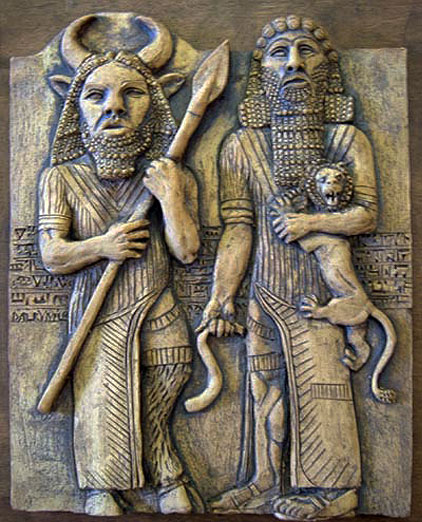
The flood was Enlil’s decision alone and the other gods didn’t fully agree with him. Ishtar, the goddess of love, mourned the destruction of humanity and when it finally came to an end, she promised Utnapishtim that Enlil would never cause a flood again. When Enlil sees that Utnapishtim and his family have survived, he is outraged, but his son Ninurta speaks up in favor of humanity, arguing that, instead of causing floods, Enlil should simply ensure that humans never become overpopulated by reducing their numbers using wild animals and famines.
Maybe Thanos was right. Like what Ziusudra did in the previous version of this story, Utnapishtim made a sacrifice to appease the gods. When Enlil entered his ship, he was so angry. But after seeing Utnapishtim’s reverence, he becomes happy and grants Utnapishtim and his wife an immortal life at the ends of the world.
Before the creation of human beings, young Enlil lived in the city of Nippur. Nippur was an urban center of the gods in this story and governed by divine law. There was a young beautiful goddess living in that city with the name of Ninlil. Enlil and Ninlil both got attracted to each other. Ninlil’s mother, Nisaba, was the goddess of writing. She also acted as the scribe of the gods. One day when Ninlil wanted to go bathe in the river alone, Nisaba didn’t allow her to go as she might attract Enlil there. But Ninlil carelessly went to the river to bathe and, like her mother thought, Enlil went there to seduce Ninlil.
He then impregnates Ninlil with a son and that son is the moon god, “Nanna“. Enlil soon went to Nisaba to ask for her daughter’s hand in marriage. Afterward, as Enlil is walking through the city, he is arrested by the other gods for being ritually impure and exiled from the city to Kur, the Sumerian underworld. Ninlil was also arrested and banished to the underworld. So she followed Enlil at some distance, going wherever he went.
Enlil became aware of her stalking and cleverly crafted a plan. He told every keeper of the gates not to tell Ninlil where he went if she came to ask. Enlil soon disguised as a keeper. Ninlil went there and asked every keeper present about Enlil’s location, but no one told her anything. She then finally asked Enlil, who was now disguised as a keeper of the gates. He also said that he didn’t know. However, he later manages to seduce Ninlil and impregnate her with Nergal, the god of war and death.
Enlil then took many forms, like man of the river of the nether world and man of the boat, and the same scenario repeated. As a result, Ninazu, the god of the underworld, and Enbilulu, the god of canals were born. This is considered a genealogical myth invented to explain the origins of the moon-god Nanna, as well as the various gods of the Underworld. Even after all these seductions of Enlil, Ninlil still loved him and acted as his consort. In the poem, Ninlil declares, “As Enlil is your master, so am I also your mistress!”. This story is also considered to be the oldest story featuring a shape-shifting god.
References:
- “Enlil.” Encyclopedia Britannica, www.britannica.com/topic/Enlil.
- “Epic of Gilgamesh.” Ancient History Encyclopedia, 28 Apr. 2011, www.ancient.eu/article/225/epic-of-gilgamesh/.
- “The Schoyen Collection.” Schoyen Collection, www.schoyencollection.com/.
Shop amazing Anunnaki Merchandise at our store, Follow us on Facebook, Instagram, And For More Interesting Content Also Subscribe To Our Youtube Channel.

